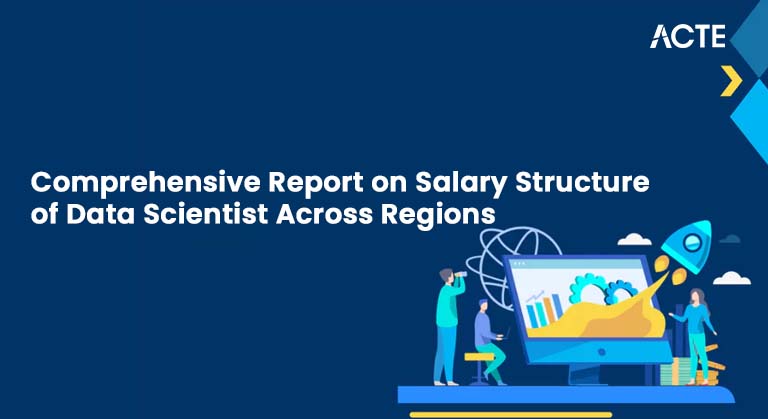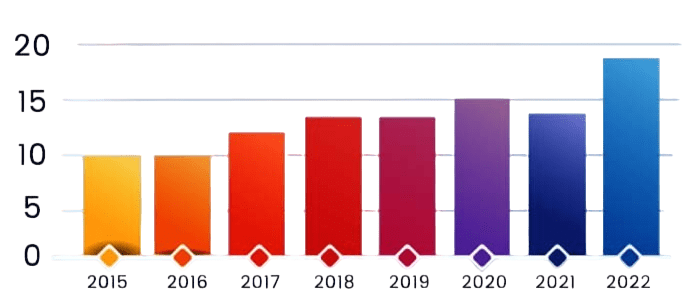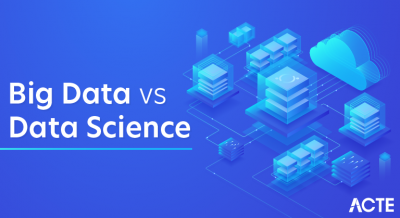
- Introduction
- Factors Influencing Salaries
- Geographic Salary Trends
- Experience-Based Salary Levels
- Education and Certification Impact
- Industry-Wise Salary Breakdown
- Company Size and Compensation
- Salary Trends Over Time
Introduction
In the rapidly evolving landscape of technology and data-driven decision-making, the role of the Data Scientist has emerged as one of the most sought-after and lucrative career paths. Data Scientists are experts who analyze complex datasets to extract meaningful insights that drive business strategy, innovation, and operational efficiency. As organizations across industries increasingly rely on big data and artificial intelligence, the demand for skilled Data Scientists has surged globally, making this profession highly valuable. The salary structure for Data Scientists is influenced by various factors including education, experience, industry, geographic location, and the complexity of the work involved. Entry-level Data Scientists typically earn competitive salaries, which grow substantially with experience and advanced skills in machine learning, statistical modeling, and programming languages like Python and R, all of which are developed through Data Science Training. Industry sectors such as finance, healthcare, technology, and e-commerce often offer higher compensation due to the critical nature of data analytics in their operations. Geographic location also plays a significant role, with Data Scientists in tech hubs such as Silicon Valley, New York, London, and Bangalore earning higher salaries compared to those in smaller cities or developing regions. Additionally, companies with greater data maturity and investment in AI tend to offer more attractive compensation packages to retain top talent. The future outlook for Data Scientist salaries remains positive, driven by the expanding role of data in decision-making and digital transformation initiatives. Organizations continue to invest heavily in data expertise, ensuring that skilled Data Scientists will remain in high demand with competitive salary growth for years to come.
Are You Interested in Learning More About Data Science? Sign Up For Our Data Science Course Training Today!
Factors Influencing Salaries
Data Scientist salaries are shaped by a variety of important factors that reflect the complexity and value of the role in today’s data-driven economy. One of the primary influences is technical skills. Proficiency in programming languages such as Python and R, along with expertise in machine learning algorithms, data visualization techniques, and cloud computing platforms, significantly enhances a Data Scientist’s earning potential. These skills enable professionals to handle complex data problems and deliver impactful insights that drive business growth. Experience also plays a crucial role in salary determination, which underscores Why Data Science Matters & How It Powers Business Value. Entry-level Data Scientists typically earn lower salaries as they build their expertise and practical knowledge. In contrast, senior Data Scientists with several years of experience command higher pay due to their advanced analytical capabilities, leadership in projects, and domain-specific knowledge. Their ability to translate data into actionable business strategies makes them invaluable to organizations. Education is another key factor. Individuals with advanced degrees, such as a Master’s or Ph.D., often receive higher salaries because of their deeper theoretical understanding and research experience. Additionally, certifications in data science, machine learning, or cloud technologies can further boost salary offers by demonstrating validated expertise and commitment to the field. Industry and company size also impact compensation.

Sectors like finance, healthcare, and technology typically offer higher salaries, reflecting the strategic importance of data in these industries. Larger corporations and tech giants are generally able to provide more competitive pay and benefits compared to startups or smaller firms, which may have limited resources but offer other growth opportunities. Overall, a combination of skills, experience, education, certifications, industry, and company size shapes the salary landscape for Data Scientists.
Geographic Salary Trends
- United States: Data Scientists and Analysts in the U.S. generally earn some of the highest salaries globally, especially in tech hubs like San Francisco, New York, and Seattle. These cities offer premium compensation due to high demand and cost of living.
- Europe: Salaries in Western Europe tend to be competitive but generally lower than in the U.S. Countries like Germany, the UK, and the Netherlands lead the market, with strong demand in finance, automotive, and tech sectors.
- Asia: Salaries vary widely across Asia. India and China have growing markets with increasing demand, but average salaries are typically lower than Western countries, especially in roles not leveraging advanced tools like Python Generators.
- Canada: Canadian cities such as Toronto and Vancouver provide competitive salaries, though generally lower than U.S. counterparts. The demand for data roles is growing steadily in sectors like finance, healthcare, and telecommunications.
- Australia: Sydney and Melbourne see solid salaries for data professionals, comparable to Western Europe. The country’s strong mining, finance, and tech industries contribute to the demand.
- Middle East: Salaries in Gulf countries like the UAE and Saudi Arabia can be attractive, especially with tax-free income and expatriate benefits. Demand is growing in oil, finance, and smart city projects.
- Remote Work Influence: The rise of remote work has somewhat flattened geographic salary differences, allowing professionals in lower-cost regions to earn competitive pay by working for global companies.
- Entry-Level Positions: Professionals with less than one year of experience focus on learning foundational skills such as data cleaning and basic analysis. Their salaries are lower but grow quickly as they gain experience.
- Junior-Level Roles: With one to three years of experience, these individuals handle more complex tasks like statistical modeling and data visualization, skills often enhanced through Data Science Training. They start working more independently, which is reflected in moderate salary increases.
- Mid-Level Experience: Data scientists and analysts with three to five years of experience develop stronger technical expertise and often lead smaller projects. Their salaries see a significant boost compared to junior roles.
- Senior-Level Experts: Those with five to eight years of experience design advanced models and mentor junior staff. Their leadership and expertise result in considerably higher compensation.
- Lead and Managerial Roles: Professionals with eight to ten years of experience often manage teams, projects, and budgets. Their salaries reflect the additional responsibilities and strategic involvement.
- Director and Executive Positions: With over ten years of experience, some move into director or executive roles, overseeing data strategy and aligning initiatives with company goals. These positions come with top-tier salaries.
- Specialized Skill Premium: Regardless of years worked, expertise in high-demand areas like machine learning, AI, or cloud computing can accelerate salary growth and command premium pay.
- Technology Sector: Technology companies tend to offer some of the highest salaries for data professionals. Roles here often involve cutting-edge AI, machine learning, and big data projects, which demand advanced technical skills and innovation.
- Finance and Banking: The finance industry pays well for data scientists and analysts due to the critical role of data in risk management, fraud detection, and algorithmic trading. Specialized knowledge of financial models can further increase compensation.
- Healthcare and Pharmaceuticals: Salaries in healthcare and pharma are competitive, especially for professionals working on medical research, patient data analytics, and drug discovery. Experience with regulatory compliance and knowledge of techniques like What is Logistic Regression can add value.
- Retail and E-commerce: Data roles in retail focus on customer behavior analysis, inventory optimization, and personalized marketing. While salaries may be moderate compared to tech or finance, growing e-commerce trends are pushing demand and pay higher.
- Manufacturing and Automotive: In manufacturing, data professionals help optimize production processes, supply chains, and predictive maintenance. Salaries tend to be steady, with increases in companies investing heavily in Industry 4.0 technologies.
- Telecommunications: This sector requires data expertise to manage vast networks, customer usage patterns, and service optimization. Compensation is competitive, especially for those skilled in network analytics and real-time data processing.
- Government and Public Sector: Government salaries for data roles are generally lower than private industry but offer stability and benefits. Data is used for policy-making, public health, and infrastructure planning, with growing demand for analytics skills.
To Explore Data Science in Depth, Check Out Our Comprehensive Data Science Course Training To Gain Insights From Our Experts!
Experience-Based Salary Levels

Education and Certification Impact
Education and certifications play a significant role in shaping the career trajectory and salary potential of Data Scientists. A strong educational background, particularly advanced degrees such as a Master’s or Ph.D. in fields like computer science, statistics, mathematics, or data science, often leads to higher salaries. These degrees provide a deeper understanding of theoretical concepts, research methodologies, and advanced analytical techniques, which are highly valued by employers. Candidates with advanced education are often considered for more complex projects and leadership roles, contributing to their increased compensation. Certifications are also important as they demonstrate specialized skills and up-to-date knowledge in specific areas of data science, machine learning, or cloud computing, including comparative expertise in tools like Python vs R vs SAS. Industry-recognized certifications such as IBM Data Science Professional Certificate, Microsoft Certified Azure Data Scientist Associate, Google Professional Data Engineer, and certifications from platforms like Coursera or edX help professionals validate their expertise and stand out in a competitive job market. These certifications are particularly beneficial for those looking to transition into data science from other fields or aiming to enhance their technical skills without pursuing another degree. Employers often view certifications as proof of practical skills and commitment to continuous learning, which can translate into higher salary offers and better job opportunities. Additionally, certifications focused on emerging technologies like AI, deep learning, and big data analytics can open doors to niche roles that command premium pay. In summary, investing in higher education and relevant certifications significantly impacts a Data Scientist’s earning potential and career growth by equipping them with advanced knowledge, practical skills, and credibility in a rapidly evolving field.
Gain Your Master’s Certification in Data Science by Enrolling in Our Data Science Masters Course.
Industry-Wise Salary Breakdown
Company Size and Compensation
Company size is an important factor that influences the compensation packages offered to Data Scientists. Generally, larger corporations, especially well-established tech giants and multinational firms, tend to provide higher salaries and more comprehensive benefits compared to startups or smaller companies. These larger organizations often have greater financial resources and are able to invest heavily in attracting and retaining top talent by offering competitive pay, bonuses, stock options, and other perks. In big companies, Data Scientists may also have access to more complex projects, cutting-edge technologies, and extensive data resources, which can contribute to higher compensation due to the level of expertise required. Additionally, larger firms usually have structured career paths and professional development programs that can lead to salary increases and promotions over time, especially for those proficient in the Top Python Libraries For Data Science. On the other hand, smaller companies and startups might offer lower base salaries because of budget constraints but can compensate with other advantages such as equity stakes, flexible working environments, and opportunities to take on a wide range of responsibilities. For some professionals, the chance to influence business strategy directly and gain diverse experience in a startup environment may outweigh the initial pay difference. The industry sector and location of the company also intersect with company size to influence pay. For instance, a small startup in a major tech hub might offer salaries comparable to those of larger firms in less expensive areas. However, overall, company size remains a key factor in determining the level of compensation that Data Scientists can expect. In summary, larger companies typically offer higher salaries and more benefits, while smaller firms provide unique opportunities that might appeal to those seeking variety and growth in their roles.
Go Through These Data Science Interview Questions & Answer to Excel in Your Upcoming Interview.
Salary Trends Over Time
Data Scientist salaries have experienced strong growth over the past decade, reflecting the rising importance of big data and artificial intelligence (AI) across industries. In 2010, the role of the Data Scientist was relatively niche, and salaries were modest by today’s standards. At that time, the average salary for Data Scientists in the United States was around $85,000. The field was still emerging, and organizations were beginning to recognize the potential of data analytics but had not yet fully embraced it. By 2015, as the demand for skilled Data Scientists increased significantly, salaries rose sharply. The growing reliance on data-driven decision-making, machine learning, and advanced analytics, supported by Data Science Training, contributed to pushing average salaries to approximately $110,000. This period marked the beginning of widespread adoption of AI technologies, fueling investment in data science talent. Today, median salaries for Data Scientists often exceed $120,000 in major markets such as Silicon Valley, New York, and London. Specialized roles, including those focused on deep learning, natural language processing, and advanced machine learning techniques, command salaries well over $150,000. Organizations now recognize the critical role Data Scientists play in gaining competitive advantages through data insights. Looking ahead, salary growth is expected to continue as AI and machine learning technologies evolve and become more integrated into business processes. Companies across sectors will keep investing in data capabilities to enhance innovation and efficiency, further driving demand for skilled Data Scientists and sustaining upward pressure on compensation.





